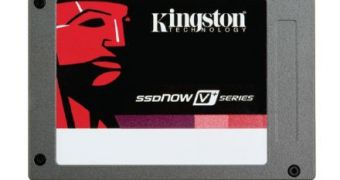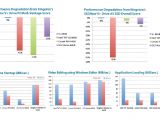Solid-state drives (or SSDs) have become one of the hottest trends in storage technology over the past couple of years, the competition in this segment being more and more dire, with several companies struggling to come up with all sorts of new technologies and developments that will allow them to be even half a step ahead of their competitors.
That's also the case with Kingston, one of the veterans in the field, whose SSD units we've had the chance of testing ourselves (repeatedly, I might add), the results being always satisfactory to say the least.
The reason why we've mentioned Kingston here is that the memory manufacturer has recently published an interesting report (backed by some serious bechmarking) related to one of the most serious issues related to SSDs, namely that of “garbage collection.
So, as some of you may know, a common concern associated with SSDs is the performance penalty associated with block-rewriting and the managing of previously deleted data on the drive.
Over time, within an SSD, files are written, moved, deleted and replaced leaving data blocks holding what is essentially “garbage” or invalid data.
When a cell is unused, data can be written to it relatively quickly, but if a cell already contains some data from previously deleted files, the entire block must be re-written, which means that whatever data is already present in the block must be read, then it must be combined or replaced with the new data, and the entire block is then re-written, a process that takes much longer then simply writing data directly to an empty block.
Of course, SSD manufacturers are quite aware of this issue and, in order to help solve it, incorporate garbage collection schemes into their drives’ firmware, that are also helped by the TRIM function provided by certain operating systems (more recent ones, though).
OK, you might say that there's nothing much related to Kingston up until now, and you'd be perfectly right, but we're getting there.
So, Kingston conducted a performance study to review the effectiveness of garbage collection on the SSDNow V+ Series and competing SSD brands (Intel "M" G2 80GB, Corsair P64 64GB and OCZ Vertex 60GB), using as a benchmark for this test the PCMark Vantage “HDD Test Suite” run on a Windows 7 test platform (Lenovo T400 Notebook, Intel Core 2 Duo P8400 @ 2.26GHz CPU, System Memory – 2GB, On-Board SATA 3Gbps with AHCI Enabled Windows 7 Ultimate, 64bit).
All drives were prepared and conditioned in the same manner, then a sequence of benchmark runs were done both with TRIM enabled and disabled, and the results...well, no surprise here, they favor Kingston's SSDs.
So, using Kingston as a relative degradation point (the Kingston V+ drives actually show relatively low degradation, fact, they actually show a 2 percent performance increase on the PCMark Vantage Score), the results show that the competing brands exhibit a significant drop in performance in the absence of TRIM, whether we're talking about the actual data transfer capabilities or the boot times.
We won't provide you with every single bit of data, but we'll offer you a screenshot of the resulting data tables, so you can search yourselves for the parameters that interest you the most.
Naturally, the conclusion of this comparative benchmark is that the Kingston SSDNow V+ Series with effective internal garbage collection does not suffer a slow-down effect like other SSDs in the absence of TRIM, but until the manufacturers of the competing products used in the test provide an official response, we'd advise you to take this at least with a tiny pinch of salt.

 14 DAY TRIAL //
14 DAY TRIAL // 
